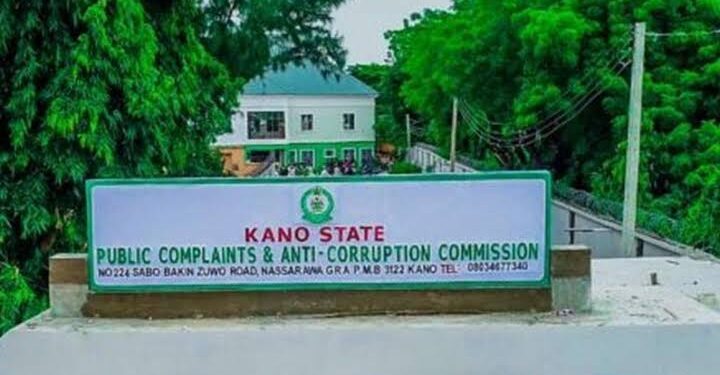Bala Inuwa, a former managing director of the Kano State Agricultural Supply Company, has accused the public complaints and anti-corruption commission of confiscating his property in violation of a court order.
Mr Inuwa said on Wednesday in Kano that the agency took over his property worth billions of naira in contravention of the Kano High Court order.
However, Muhyi Gado, the anti-graft commission chairman, said the action was in order.
Mr Gado said the order stopped any public officer from taking any actions on the properties, pending the determination of a substantive suit before it. He said the anti-graft commission took over the property, including trailers, fertiliser grinding machines, and other agricultural implements.
Mr Inuwa stated that the order related to suit No K/M 1563/2024 before Justice Aisha Ya’u between him and Safiyanu Hamisu. He said it was issued under the names and style of Limestone Processing Links as applicants and the police and commissioner of police as respondents.
According to him, the court ruled in their favour on a motion on notice dated August 19, 2024, together with an accompanying affidavit duly sworn to by the first applicant.
In the order, he said, the court decided that the respondents’ forceful entry into the 2nd applicant’s premises at No. 157 Kumbotso Rasha, Kumbotso LGA, was illegal.
The court also found illegal the taking away of moveable properties under the guise of taking inventory pursuant to the investigation against Inuwa. Also illegal, the court said, was confiscating and deploying police officers, thereby taking over the premises and denying the applicants access, particularly the second applicant, from running the factory.
The court ruled in the order that the agency’s objective of taking over the property was tantamount to illegality, unlawfulness, and unconstitutional.
It said it was a veritable contravention of the applicants’ fundamental right to moveable and immovable properties guaranteed by Section 44 of the Constitution of the Federal Republic of Nigeria 1999 (as amended).
Mr Inuwa said the court granted his order directing the respondents to forthwith remove and retrieve the police officers stationed on the premises.
He said when the respondents did not obey the court order, he reverted to the court and obtained another order of interim injunction. He said the order also restrained the respondents and their agents, including the police, from any entry, interference, dealing, occupying, or any approach to the property.
He said the court further ruled on a stay of all actions with the subject matter or matters related to it pending the hearing and determination of the motion on notice.
When contacted, Mr Gado dismissed the allegation of court order violation. He said that the orders Mr Inuwa obtained were in default and could not stand the test of legal value.
Mr Gado said all the orders restraining him and the commission from carrying out their duties were all on an interim basis and elapsed in 2024. Similarly, he said that some of the orders affected only police officers who were drafted into the company in question.
“We are using the personnel of the Kano State Road Traffic Agency as our enforcement agents. We are doing that on the powers vested in us under Section 58 of the commission’s laws,” he said.
(NAN)






